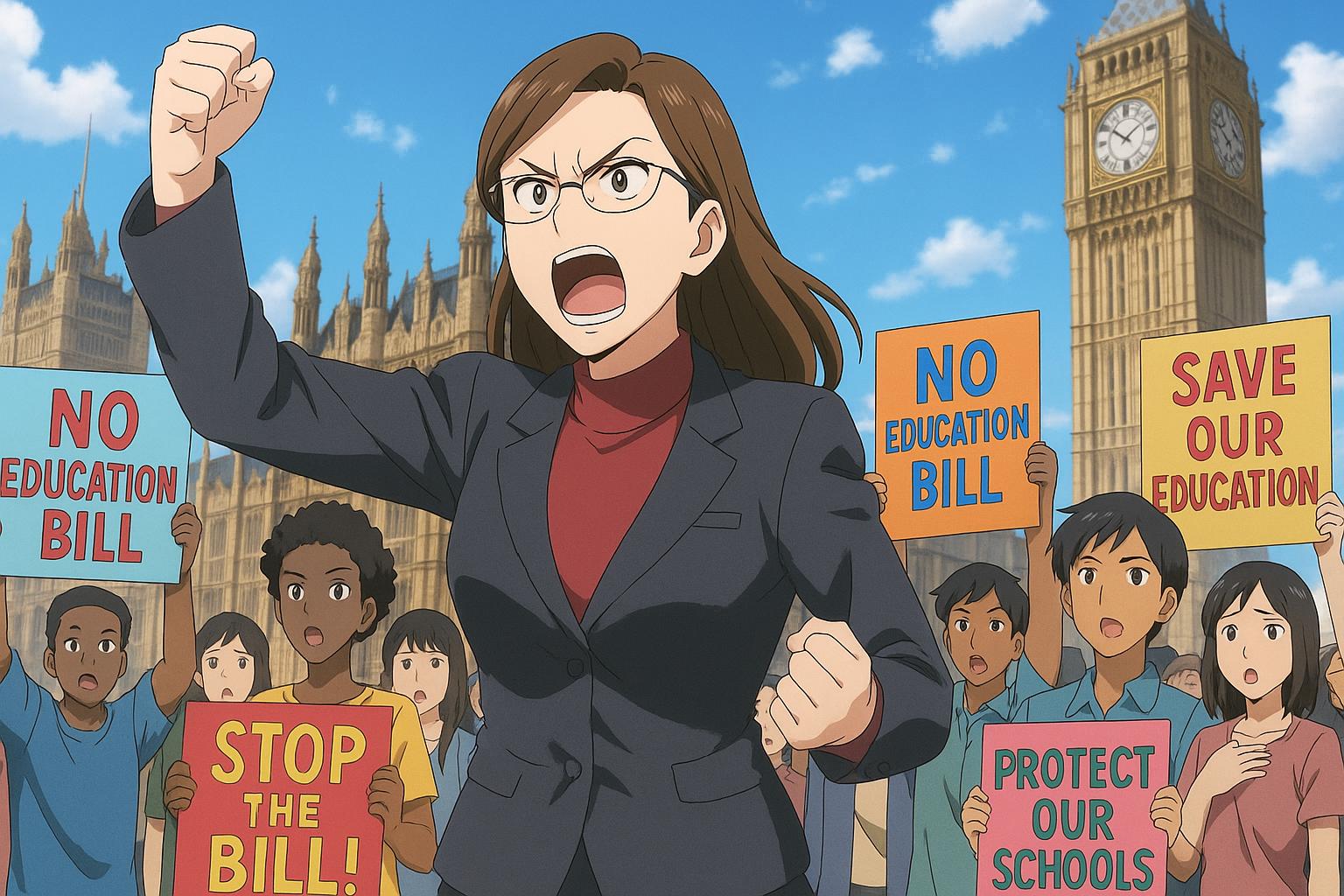Protesters gathered in central London on Sunday to voice their opposition to the controversial Children’s Wellbeing and Schools Bill, described by many as “insane.” The demonstration saw hundreds of teachers, parents, and children marching from Whitehall to Parliament Square, brandishing signs with messages like “Two, four, six, eight, educate not legislate” and “Hey, hey, ho, ho, this stupid Bill has got to go.” This legislation, currently under consideration in the House of Lords, proposes to limit the number of branded uniform items and impose stricter regulations on home education, igniting widespread concern about its implications.
At the forefront of the protest was Katharine Birbalsingh, headteacher of Michaela Community School, often referred to as Britain’s strictest head. Birbalsingh condemned the proposed law as “completely insane,” arguing it threatens to roll back substantial advancements made in education over the past 15 years. “We just want to show the Government that we are unhappy about the Schools Bill and that school leaders believe they are removing our freedoms,” she stated, emphasising the need for the Government to engage with educational professionals and consider their perspectives seriously.
The march brought together various voices from the education sector and the broader community. Joe Butterfield, a teacher from London, expressed his belief that the Bill would be damaging to the pupils he instructs. Similarly, Sarah, an assistant headteacher from Essex, highlighted why it's crucial for schools to attract talent by promoting innovation rather than stifling it with rigid regulations. She argued, “If you’re just a robot in the front of the classroom delivering a national curriculum to the letter, you’re not going to attract people that want to make a difference.”
Speakers from diverse backgrounds, including representatives from home education groups, religious organisations, and children’s charities, addressed the crowd in Parliament Square. Birbalsingh's comments about Education Secretary Bridget Phillipson garnered significant cheers, with attendees feeling that prominent political figures are out of touch with the realities facing children and educators. “The children matter, schools matter, parents matter, and our freedom matters,” she asserted.
Concerns around the Children’s Wellbeing and Schools Bill extend beyond the protest in London. In Westminster, members of the Charedi community have also rallied against the legislation, labelling it as “anti-religious persecution.” Their primary grievance focuses on the Bill’s mandate for local authorities to register home-schooled children, which they fear could lead to unwelcome state interference in their traditional educational practices. Strictly Orthodox leaders contend that their educational philosophy not only adheres to but exceeds national standards, voicing a collective concern that the proposed changes threaten their ability to impart their values and customs.
Additional protests across the country have similarly highlighted concerns that the Bill constitutes an overreach by the government, compromising parental rights and educational choice. Key provisions aimed at enhancing child welfare, such as free breakfast clubs and greater oversight of children's services, face criticism for potentially undermining the autonomy of families and home educators. According to civil liberties advocates, the measures could expand state control over family life dramatically.
Moreover, child protection organisations are urging lawmakers to reconsider the Bill’s language, highlighting clauses they believe may infringe on children's and families’ rights. The coalition includes notable groups such as the Victoria Climbié Foundation and various others pursuing better child protection practices.
As the debate around the Children’s Wellbeing and Schools Bill continues in Parliament, the volume of dissenting voices raises significant questions about the balance between child welfare and parental rights. The Government’s proposal has ignited a crucial conversation about educational freedom and the role of state oversight in childcare and education, and the ongoing protests are a testament to the fervently held beliefs of those who feel passionately about the future of education in the UK.
Source: Noah Wire Services
